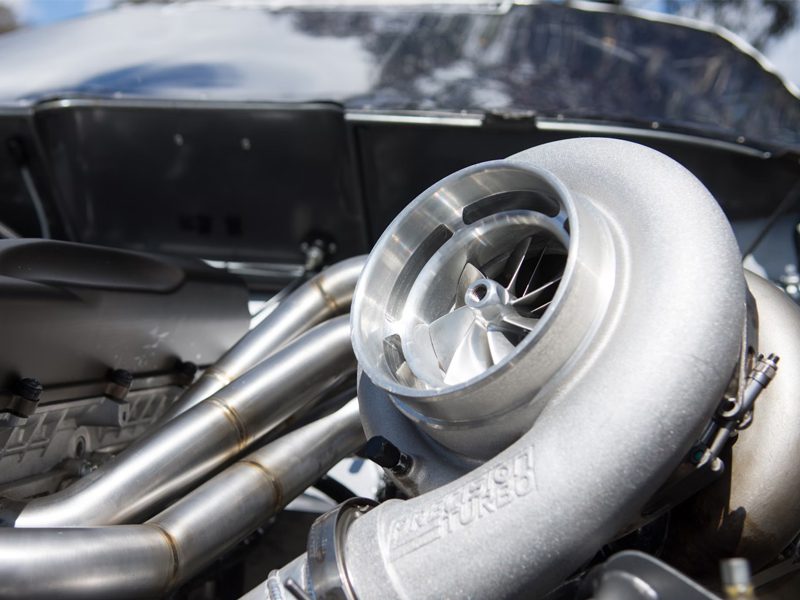Is your turbocharged car not performing like it used to? Maybe the power isn’t kicking in as expected, or you’ve noticed strange noises under the hood. If that sounds familiar, your turbocharger might be in trouble.
In this article, we’ll help you spot the key signs of a bad turbocharger and share what steps to take to keep your engine running smoothly.
What is a Turbocharger and How Does it Work?
A turbocharger is a nifty device that boosts engine performance by using exhaust gases to spin a turbine.
That turbine powers an air pump, which increases the air pressure flowing into the engine. With more air, the engine can burn more fuel, leading to a nice bump in power and overall performance.

Turbochargers are especially popular in diesel engines, where they not only provide that extra power but also help improve fuel efficiency.
Signs of a Failing Turbocharger
1. Loss of Power
A noticeable loss of power, especially at higher speeds, could be a sign that your turbocharger is failing.
If your car feels sluggish and struggles to accelerate, it might mean the turbo isn’t delivering the boost it should.
2. Excessive Exhaust Smoke
Excessive exhaust smoke in various colors—white, blue, or black—can indicate turbo issues. This could be a result of oil leaking into the exhaust system or improper combustion caused by turbo failure.
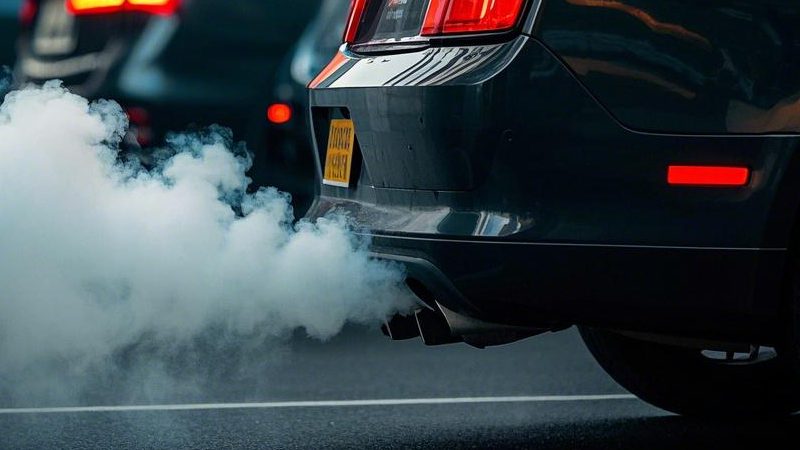
If you notice abnormal smoke, it’s a clear sign that something’s wrong with the turbo, affecting the engine’s efficiency and performance.
3. Loud Whining or Screeching Noise
A high-pitched whining or whistling sound when accelerating is another symptom of a blown turbocharger.
This noise often sounds like a dentist’s drill, typically caused by worn-out bearings or damage to the turbo housing, which interferes with the smooth operation of the turbo.
4. Check Engine Light (CEL)
If the Check Engine Light (CEL) comes on, it could be a sign of issues with boost pressure, often related to turbocharger problems.
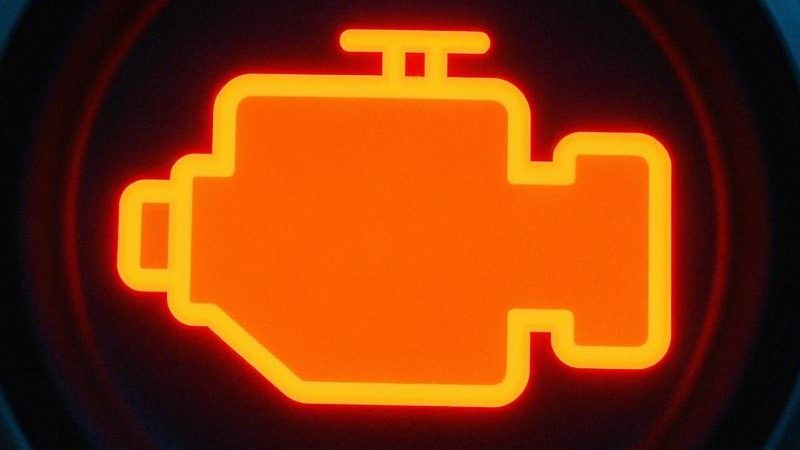
The vehicle’s ECU detects the malfunction and triggers the light as a warning. It’s important to address this issue quickly, as it may indicate that the turbo isn’t functioning properly and could lead to further engine problems if left unchecked.
5. Reduced Fuel Efficiency
If you’re burning more fuel than usual when you drive your car, it could signal a failing turbo.
A turbo that’s not operating efficiently may cause the engine to work harder, leading to quicker depletion of your fuel tank and reduced fuel efficiency, ultimately affecting the overall performance of your vehicle.
6. Oil Leaks or High Oil Consumption
Oil pooling around the turbo or excessive oil consumption are clear indicators of turbo failure.
A blown turbo seal can allow oil to leak into the exhaust system or be burned up by the engine, which can lead to significant performance issues. If you notice these symptoms, it’s crucial to inspect the turbo for any potential damage or wear.
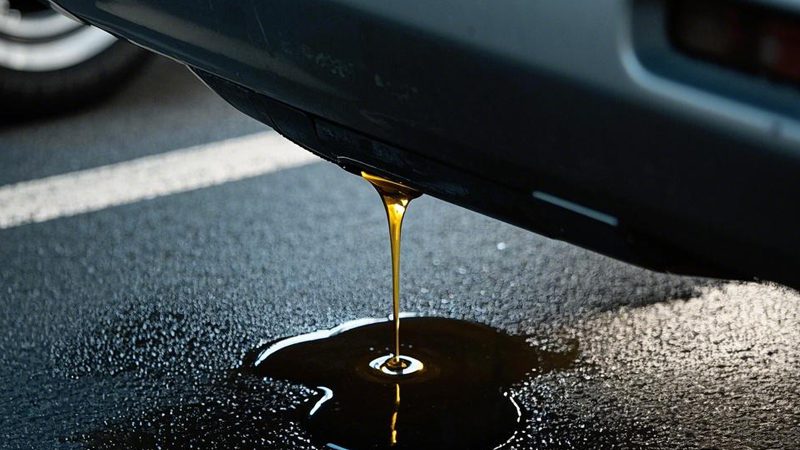
7. Unusual Engine Performance or Stalling
If your car experiences irregular acceleration or stalls at higher RPMs, it could be due to inconsistent airflow or pressure from a failing turbo.
A malfunctioning turbo affects the engine’s ability to perform smoothly, causing stalling or a lack of power when accelerating. This issue can worsen over time if left unaddressed.
How to Test if Your Turbo is Working
1. Visual Inspection
Start with a visual inspection of your turbocharger system. Check for oil leaks around the turbo housing or intercooler, as these could indicate seal issues.
Additionally, look for damaged compressor blades or excessive shaft play, which can affect the turbo’s performance.
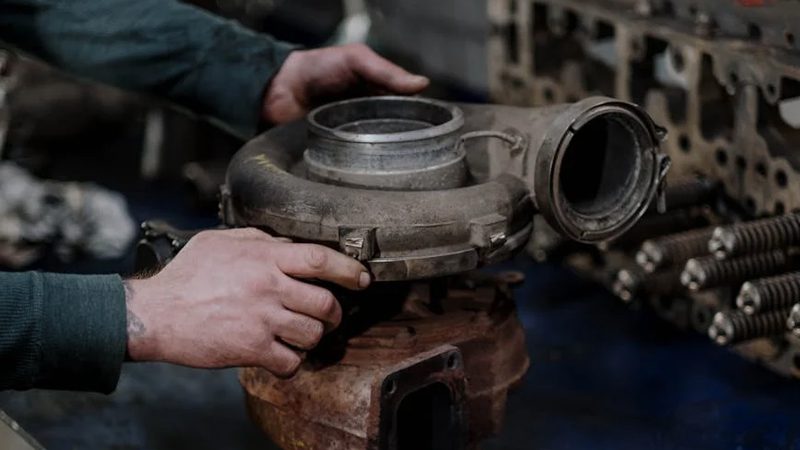
2. Listen for Sounds
Listening for unusual noises is another key way to spot potential turbo problems.
High-pitched whining or rattling sounds during acceleration are red flags that something might be wrong with the turbo. These noises often indicate issues like worn-out bearings or damaged components inside the turbo.
3. Boost Pressure Test
A boost pressure test can help determine if the turbo is delivering the expected pressure.
Use a boost gauge to measure the amount of air pressure being produced by the turbo. If the pressure is below the expected level, it could indicate that the turbo is underperforming or failing.
4. ECU Diagnostics
Using an OBD-II scanner can help identify any turbo-related fault codes.
This diagnostic tool connects to your vehicle’s ECU and reads any stored codes that could point to issues with the turbocharger, such as low boost pressure or malfunctioning components.
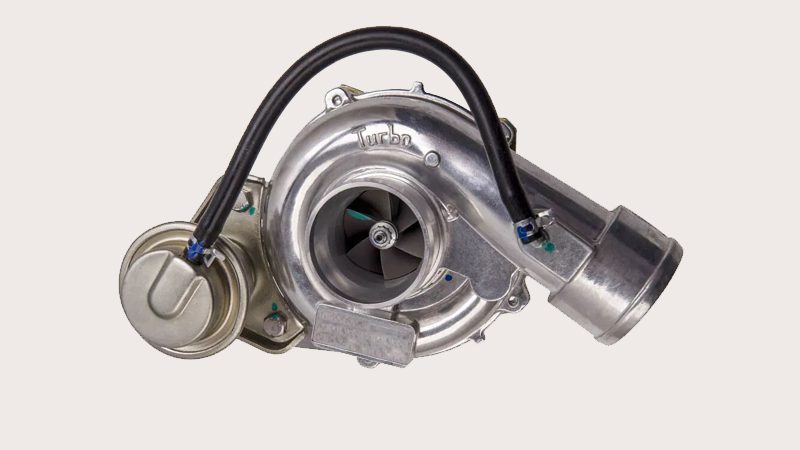
Causes of Turbo Failure
Turbo failure can result from several issues. Below are the most common causes:
1. Oil/Lubrication Issues
Engine oil is essential for proper turbocharger function. A lack of oil or poor-quality oil can cause overheating and eventual failure.
2. Damaged Seals and Gaskets
Damaged seals and gaskets can result in oil leaks into the exhaust system, disrupting turbo operation and causing damage.
3. Foreign Objects/Deposits in the Turbo
Dirt, dust, or small stones can enter the turbo, damaging its components and impairing performance.
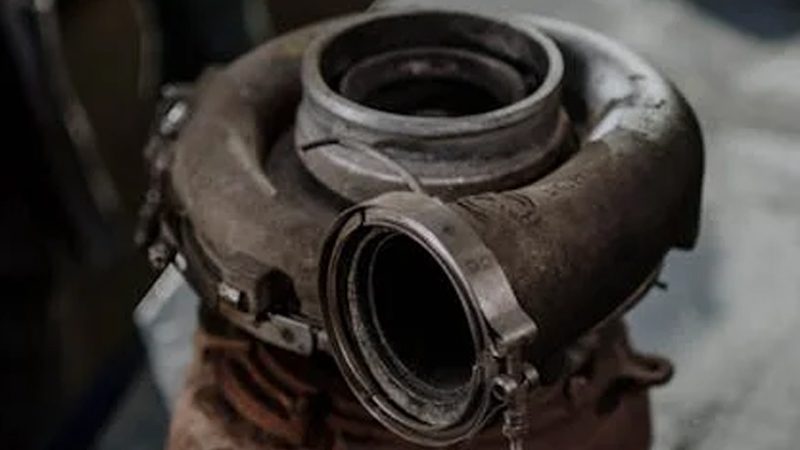
What to Do If You Suspect a Blown Turbo
If you suspect that your turbocharger has blown, it’s important to stop driving the vehicle immediately to prevent further engine damage.
Next, consult a trusted mechanic or dealership to get a proper diagnosis of the issue.
If the turbo needs to be replaced, make sure to use high-quality OEM parts to ensure the best performance and longevity for your engine.
How to Prevent Turbo Failure?
1. Regular Maintenance
Keeping up with regular maintenance is key to preventing turbo failure. Ensure that oil changes are done on schedule and always use high-quality oil to keep the turbo functioning properly.

2. Allow Proper Cooldown
After driving hard or pushing your vehicle to high speeds, allow the engine to idle for a minute before turning it off. This helps the turbo cool down gradually and prevents damage from excessive heat.
3. Use Clean Filters
Using clean air and oil filters is crucial to prevent debris from entering the turbo system. Dirt and contaminants can cause serious damage to the turbo and its components.
4. Address Issues Promptly
If you notice any signs of trouble, such as boost leaks, unusual noises, or oil-related issues, address them as soon as possible. Early detection and timely repairs can help you avoid costly turbo failure in the future.
Why Choose Woda for Turbocharger Replacement Parts?
Nanjing Woda Auto Technology Co., Ltd. specializes in high-quality engine components, including turbochargers, ensuring that your vehicle delivers optimal performance and reliability.
Our products are crafted to meet the highest durability standards, designed to withstand the demands of modern engines.
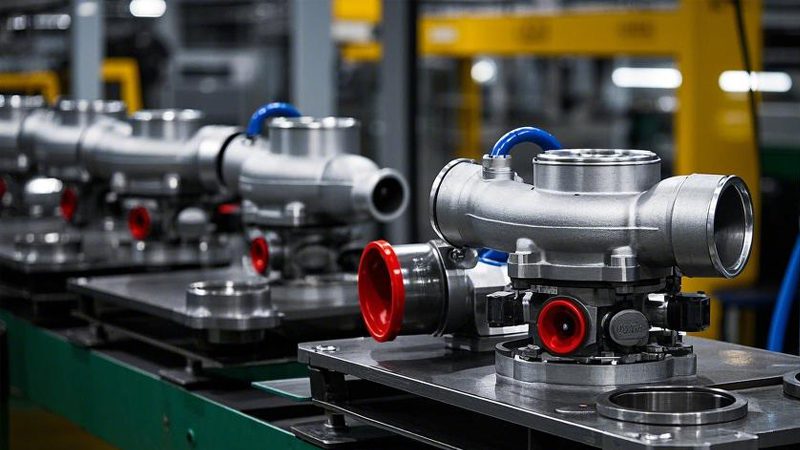
Partner with Nanjing Woda Auto Technology for dependable, high-performance engine parts trusted by professionals worldwide.
Contact us today to learn how our proven solutions can enhance your supply chain and deliver lasting value to your customers.

